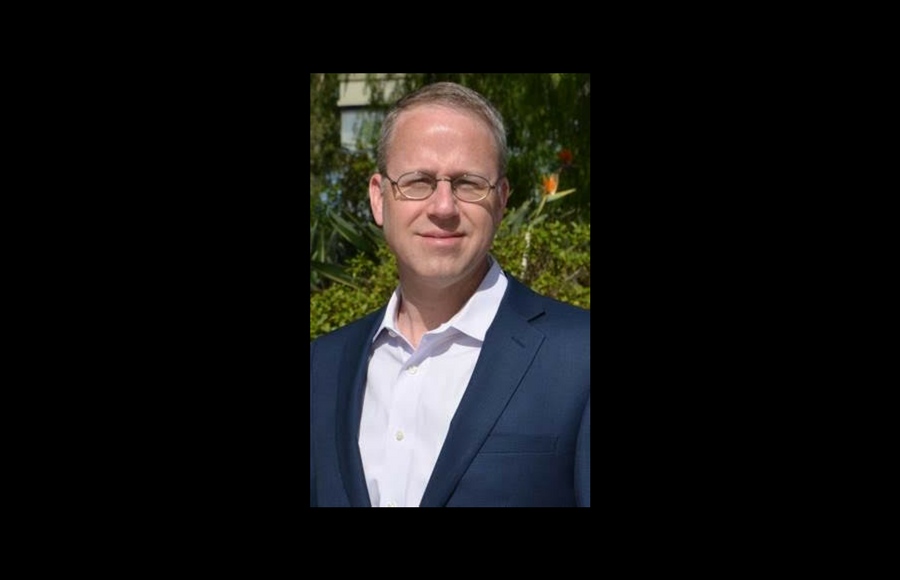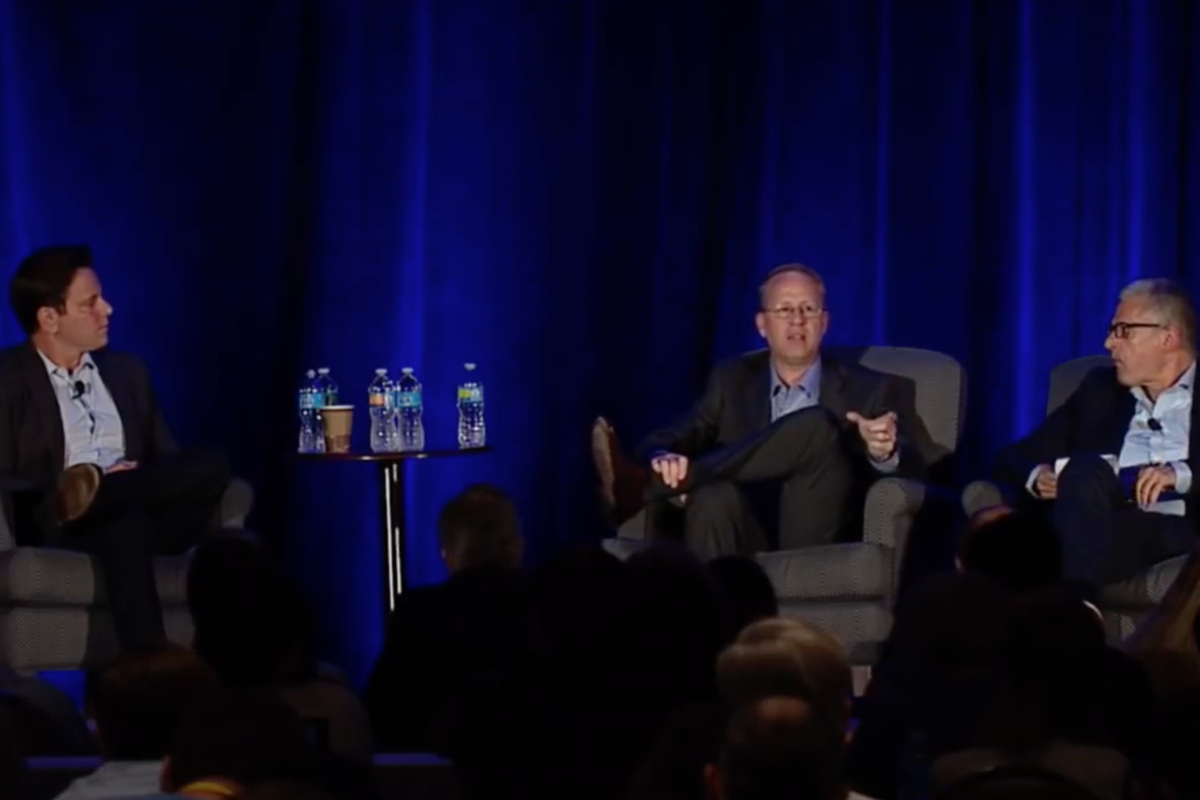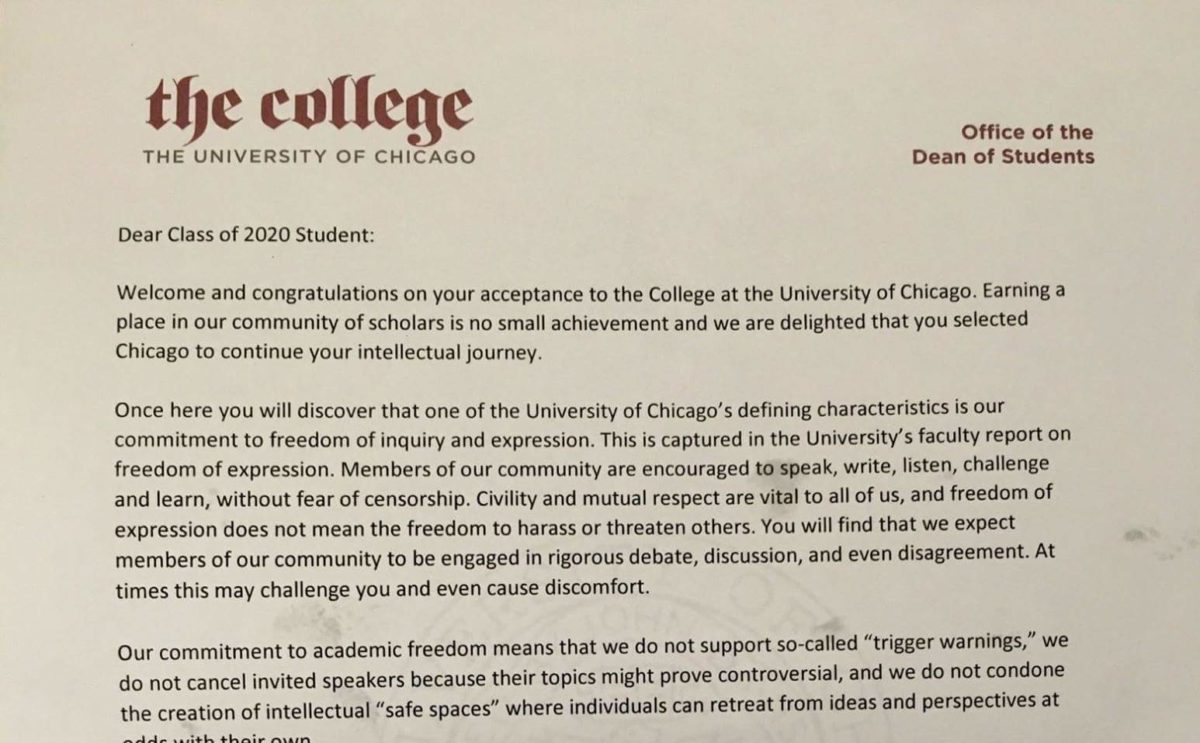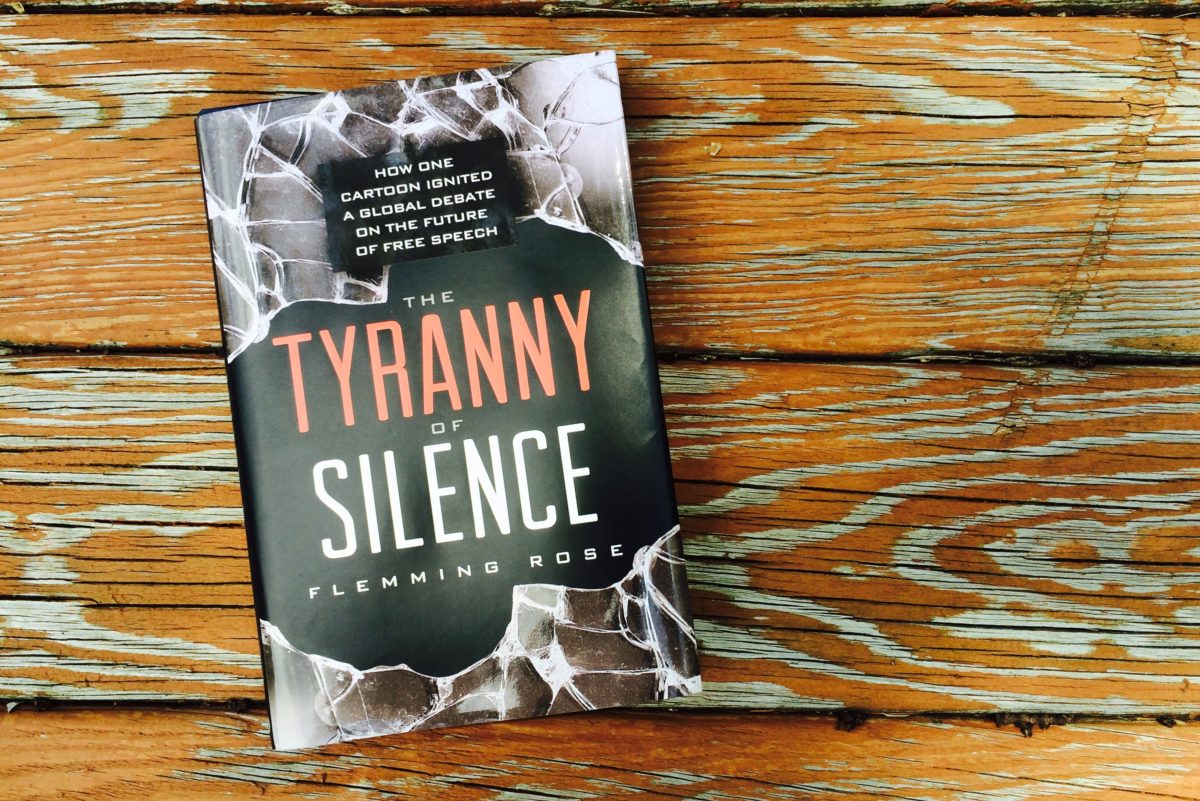 Steve Simpson is the director of legal studies at the Ayn Rand Institute. A former constitutional litigator for the Institute for Justice, Simpson has litigated major constitutional cases in courts across the nation, including the United States Supreme Court. Simpson writes and speaks on a wide variety of legal and constitutional issues, including free speech and campaign finance law, cronyism and government corruption, and the rule of law. The rise of Donald Trump and recent violence at his rallies have prompted much discussion about free speech issues, in politics and more broadly. The Undercurrent’s J.A. Windham had the pleasure of speaking with Simpson on these timely issues.
Steve Simpson is the director of legal studies at the Ayn Rand Institute. A former constitutional litigator for the Institute for Justice, Simpson has litigated major constitutional cases in courts across the nation, including the United States Supreme Court. Simpson writes and speaks on a wide variety of legal and constitutional issues, including free speech and campaign finance law, cronyism and government corruption, and the rule of law. The rise of Donald Trump and recent violence at his rallies have prompted much discussion about free speech issues, in politics and more broadly. The Undercurrent’s J.A. Windham had the pleasure of speaking with Simpson on these timely issues.
The Undercurrent: There’s been a lot of discussion lately about free speech on the campaign trail—when it applies, who supports it, etc. I’d like to kick us off with a basic question: what is “free speech,” and why should we care about it?
Simpson: “Free speech” is the term we use for the legal right to engage in speech protected by the Constitution, but also the individual moral right to speak freely. And the proper meaning of that right—to boil it down to its essence—is that it protects your freedom to say what you want, about anything you want, so long as you don’t use speech to violate the rights of others (which is true of any right). So, for example, you don’t have the right to commit fraud or libel, to threaten others, or to incite violence.
The core of the right—why we have it to begin with—is that we’re thinking beings who have to use our minds to guide our actions. One way we do that is by communicating with other people. We live in society, which is a huge benefit, and we therefore should and must have the right not only to think for ourselves but to express our thoughts to other people.
As long as you do that in a way that respects the rights of others, the proper understanding of the right to free speech is that you can say any damn thing you want. Now, that’s not how it’s understood today, and there’s a lot of confusion about what the right entails. We’ve seen that a lot in recent times with popular objections to “offensive” speech and calls to limit political speech, but views like these ultimately flow from an improper understanding of the right to free speech.
TU: How do you view the relationship between freedom of speech and political discourse in this country? What role does the First Amendment play in this relationship?
Simpson: Let me address a preliminary issue first. We need to ask ourselves: “What is the relationship between freedom of speech and civilized society?” Political discourse is obviously part of civilized society and is very important, but the importance of free speech goes far beyond that. I would call free speech one of the foundations of civilized society. Simply put, you can’t have a free society like ours without protections for freedom of speech.
Ayn Rand once said that the two primary benefits we get from civilized society are the division of labor (specialization, trade, and cooperation) and the accumulation and dissemination of knowledge. Progress happens in a society only because people can profit from the knowledge and ingenuity of others through communication and trade. None of that can happen without freedom of speech. So one way to think about the importance of free speech is that, without it, you don’t get the modern world and all of its amazing benefits.
Now with that context in mind, it’s easy to see how important free speech is to politics. We really couldn’t have the type of government the Founders gave us—a government that protects our rights—without freedom of speech. In fact, one of the reasons they included the First Amendment in the Constitution was to protect the right to speak about government. This is one of the reasons campaign finance laws are such a flagrant violation of the First Amendment. In essence, they seek to limit and ration people’s speech on an issue that is vitally important, which is politics.
You can actually see a lot of what I’ve said about free thought and free speech reflected in the First Amendment itself. The structure of the Amendment is really quite fascinating. It starts with the freedom of religion clauses, then it goes to free speech, then freedom of the press, assembly, and petition. And if you think about it, there’s a logical order to that: first is freedom of conscience (which you can think of as free thought on the type of fundamental questions that religion involves), and then it goes to the various expressions of that principle—first to speech, then to the main means of mass communication at the time, which was the press, then to the right to associate and speak out with others (freedom of assembly), and finally to the right to speak directly to government, which is the right to petition.
This circles back to something that I raised before, which is that the core of the right to free speech is freedom of thought, which goes to the role of reason in human life. We have to guide our own lives, we have to make choices, and we have to think to survive. In order to do that, we have to be free—both to think and to act on our thoughts, and therefore to communicate with others. That’s not just because it’s fun to talk to other people, but because part of the process of figuring out what’s true and good in our lives involves discussion and debate. Think about it from the perspective of the scientific method. You put your data and your ideas out there, others evaluate and possibly criticize them, and through the process of deliberation and debate, trial and error, everyone learns. Freedom of speech—indeed, freedom in general—is absolutely essential to this process.
TU: I’d like to apply some of this to recent events. For instance, much has been made of the so-called “riots” that prompted the cancellation of a Donald Trump campaign rally in Chicago last week, which Trump and many others have described as a violation of his First Amendment rights. Are they right?
Simpson: No. Those aren’t violations of the First Amendment, but they could still be violations of his and other people’s rights. The First Amendment is a restriction on government and government only. What it essentially says is that government can’t make any laws that abridge your freedom of speech. It doesn’t apply to private parties at all. But to be clear, that doesn’t mean protestors can disrupt a Trump rally or prevent him or others from speaking—or, for that matter, that Trump supporters can prevent others from speaking. It just means that the conduct of private parties toward one another is a matter for criminal and tort law to resolve, not the First Amendment.
So while protestors blocking your way to a Trump rally (as we saw last week) is not a violation of the First Amendment, it’s still criminal conduct—it’s a violation of your personal right to go where you want, to own and use property, to trade and deal with others, and the like. This is precisely why we criminalize conduct like assault, battery, trespass, and the like. And from that standpoint, there’s bad conduct on both sides of this dispute.
It may be helpful to recall what I said earlier about the nature of rights, which is that they protect your freedom of action, but only to the extent that you don’t infringe the rights of others. One way to think about rights is that they define zones of freedom within which you have the authority to act to carry on your life. They exist to prevent conflicts, not to create them.
One of the great confusions about free speech today is that it’s somehow a “special” right that trumps other rights. A common example of this is the idea that my right to speak somehow trumps your property rights, so that protestors have the right to invade a private gathering and disrupt the speakers. That’s completely wrong. I have the right to free speech—on my property, and at my expense. I don’t have the right to come into your living room and to deliver a political lecture to you. And if I did, you would have every right to tell me to leave. That’s not a violation of my right to free speech; it’s an example of you invoking your right to your own property.
This apparent “clash” of rights is where I think a lot of confusion about free speech comes from. The Supreme Court has held that you have the right to speak in a public space or on a street corner so long as you don’t disrupt other people’s right to travel and carry on their lives. But people often times confuse that with the idea that they therefore have the right to speak anywhere they want. Assuming Trump’s rallies are private and he paid for the venue, he can tell you to shut up or leave. Now, we might criticize him for that, depending on the circumstances. But that’s no violation of your right to free speech. You don’t have a right to go into somebody else’s arena and blabber on while they’re giving a speech.
TU: Let’s talk about what happens in those arenas. Recently, increasing violence at Trump’s rallies, coupled with comments that appear to show the candidate at least encouraging physical confrontation, have led some to accuse him of “inciting violence” and others to defend the encouragement as protected free speech. Can you tell us a bit about what “incitement” actually is, and whether Trump is really committing it? If not, is he engaged in protected speech?
Simpson: Sure. Let’s start with what the crime is, and we’ll go from there. “Incitement,” simply put, is calling on people to engage in violence or unlawful behavior. It can get complicated, but to understand it it’s helpful to know that in the criminal law, there are all sorts of ways to violate other people’s rights and to break the law by acting in concert with others. For example, you could pay someone else to hurt or kill another person or to steal his property, or you could concoct a plan for a number of people to achieve those ends together. There are a number of categories in the criminal law that cover conduct like this, such as aiding and abetting, solicitation, and conspiracy. Incitement is in the same type of category—it’s a kind of collective lawlessness. It’s one person encouraging another, and both of them in a sense joining together to commit some violation of rights or the law. The classic example of incitement is that you’re in a crowd of people who are restless or angry and verging on violence, and you say something like, “let’s all get together and loot that store.” You’re as guilty as they are for the ultimate robbery because you intended to bring it about, and you would be properly subject to criminal punishment for that.
Based on what I’ve read, it sounds like Trump may have committed incitement on a couple of occasions during his rallies, when he has said things that seem like they are encouraging his supporters to use force and violence against protestors. But to really judge that accurately would take more than just reading a few news reports.
TU: So how should the attendees of Trump rallies or Trump himself respond to these protestors?
Simpson: Assuming Trump has the exclusive right to use the venue, then the answer is either don’t let them in, or, if they get in and you can’t convince them to stop, call the police. As far as I can tell, the people who are coming in and protesting Trump rallies are trespassing and physically impeding other people from engaging in conduct—holding a rally and speaking or listening—that Trump’s supporters have every right to engage in.
But the fact that somebody trespasses on your property doesn’t give you the right to right to punch him or tackle him and drag him bodily out the door. The proper response is to call the police and let them take care of that. Of course, you have the right to defend yourself to the extent that it’s necessary to prevent someone from harming you. But short of that, call the police.
TU: In another vein, Trump has expressed a desire to “open up our libel laws” so that he can sue media outlets that criticize him. What do you make of this proposal?
Simpson: I make of it that it’s completely stupid. And I put it that way on purpose, because it’s a totally unserious proposal that betrays a real ignorance of law and government, not to mention a real disdain for free speech. The president doesn’t have the power to change the libel laws. He’d have to change the law in all 50 states and then overturn a lot of Supreme Court precedent or amend the Constitution. His view on this (and many other things) is cause for concern because he’s running for president—he’s going to have a lot of power over other people. So even though he can’t just up and change the libel laws, it’s troubling that somebody with that kind of authority would boast about his intent to use the power of the presidency against people who criticize him.
Political candidates willingly put themselves in a position in which they’re obviously going to be criticized and in which they should be criticized. I wouldn’t go as far as to say that they should never be able to sue for libel, but if you’re going to run for an office that gives you the kind of power politicians wield today, the law should give ample leeway to allow people to criticize you (and I think the Supreme Court has done a pretty good job of establishing the right standards). I usually find it tiresome for any politician to whine about the media being “unfair” or the like, but for a candidate to threaten to use the power of law against the media is scary.
TU: What’s your ultimate assessment of Donald Trump on freedom of speech: friend or foe?
Simpson: I would put it like this: Trump, like most candidates for political office today, is not a friend of freedom itself. It’s not just on free speech, which he seems not to understand or care about at all. Trump is anti-intellectual and opposed to freedom at its core.
To take one example, after the attacks on the “Draw Muhammad” contest in Garland, Texas, Trump’s reaction was something like, “Don’t you have anything else to draw? Why are you drawing pictures of Muhammad? Draw something else.” Not only does this ignore the reasons someone should want to draw Muhammad, but it’s also egregiously anti-intellectual. “If people get mad at your speech, stop speaking,” is really just idiotic for anybody to think, let alone somebody who wants to be president. I should add, though, that Trump is not the only person, let alone the only politician, who reacted that way to the Garland attack.
Another example is Trump’s praise for the “strength” of the Chinese in responding to the Tiananmen Square protests, or his praise for various oppressive leaders. He’s got a real authoritarian streak. He admires despots and dictators, people like Putin who “can get things done.”
“Getting things done” is wonderful if you’re in business and engaging with people on a voluntary basis. But we have to make a sharp distinction between that and “getting things done” when you’re heading up a government that wields force. That’s a whole different ballgame.
I think all of this goes deeper than just free speech. I don’t think a guy like Trump views free speech as a separate phenomenon, because I don’t think he has any understanding or appreciation for what freedom itself means. I should add that I think most candidates out there—Sanders and Hillary certainly, and I think to a large extent the others who have been in the race—are about as bad as Trump on this. We live in a time in which most candidates for office are essentially authoritarians, and in which, sadly, the only real question is over how much they want to use the power of government to control your life.
The only thing that I find really unique about Trump is that he wears his authoritarianism on his sleeve, and, importantly, that his supporters seem to like that about him. That’s certainly unpleasant, but I think it tells us something about the direction in which this country is going. That doesn’t mean we can’t fight it by educating people and promoting better ideas, but it is something we should take very seriously.
The Undercurrent is happy to offer interviewees a platform for their ideas. Their responses do not necessarily represent the views of the publication at large.
Image courtesy of the Ayn Rand Institute




